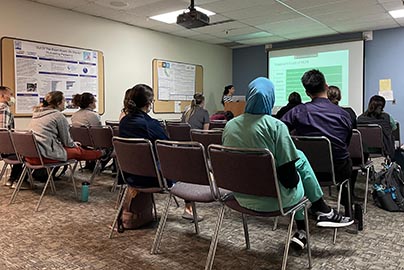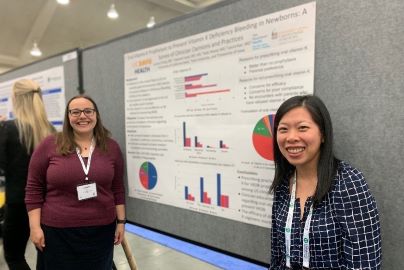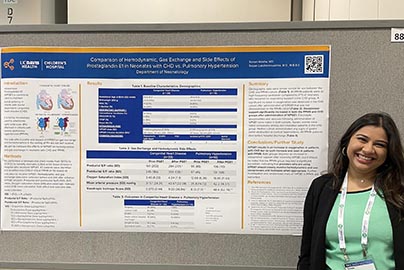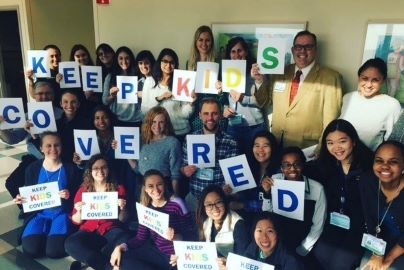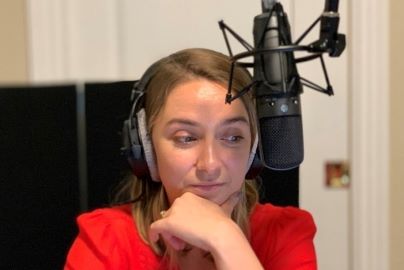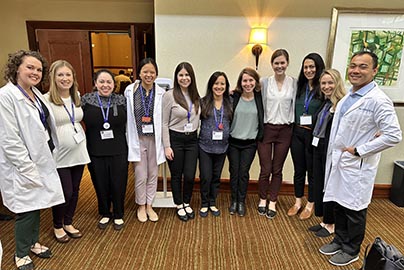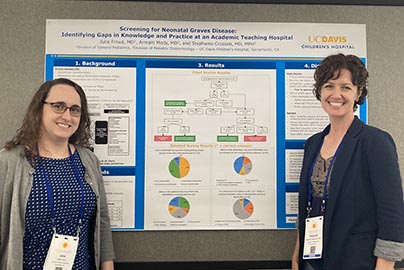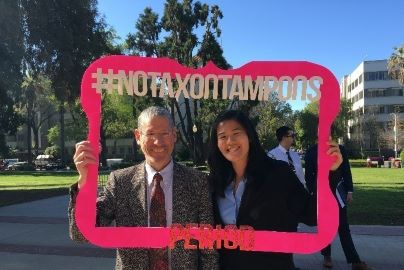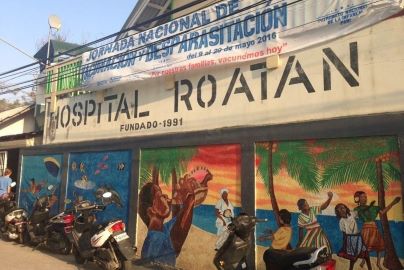Pediatric Residency Program
Curriculum
Residents work closely with and learn from faculty in a variety of clinical settings and mentored experiences. Additionally, our program curriculum includes opportunities for community health and advocacy, scholarly projects, and teaching. The curriculum is designed to provide the skills, knowledge, and experiences needed to be outstanding pediatrician leaders, advocates, scholars, and teachers.
-
Teaching Conferences
More about teaching conferencesarrow_forwardAll residents participate in teaching conferences, which include morning reports, multidisciplinary and interdisciplinary block didactic sessions, case management conferences, journal clubs and grand rounds.
-
Scholarly Projects
Learn more about scholarly projectsarrow_forwardIn the first year of residency, residents are introduced to four potential scholarly project focus areas: community health and education, quality improvement and patient safety, medical education, and research. Residents work with a faculty mentor to design their scholarly project in one of the focus areas.
-
Research Opportunities
Learn more about research opportunitiesarrow_forwardResidents have opportunities to work with faculty on research ranging from stem cell research in the laboratory, clinical and translational research, and health services research.
-
CHAANJE Lives Initiative
Learn more about CHAANJEarrow_forwardThe Child Health Advocacy, Antiracism, Neighborhood partnerships, Justice and Equity (CHAANJE) Lives Initiative is a three-year threaded curriculum aimed at training physician leaders and advocates for pediatric health equity and social justice to improve child health disparities and CHAANJE Lives.
-
Community Health and Advocacy
More about community health and advocacyarrow_forwardAll first-year residents complete a required four-week Community Health Advocacy (CHA) rotation to help increase their understanding of adverse childhood experiences and the social determinants of health, which in turn, provides them with tools to address health inequities in their clinical practice.
-
Media Advocacy Opportunities
More about media advocacy opportunitiesarrow_forwardMedia advocacy training is integrated into the Community Health and Advocacy rotation. For residents who are interested, the program works with residents to identify areas of media health advocacy interest, develop appropriate messaging, and provide media appearance opportunities.
-
Residents as Teachers
More about residents as teachersarrow_forwardAll residents play a major role in teaching and mentoring medical students and peers. Resident-as-teacher curricula help prepare residents for their important role as medical educators.
-
Pediatric Quality Improvement and Patient Safety (QIPS)
Learn more about QIPSarrow_forwardOur innovative Pediatric Quality Improvement and Patient Safety (QIPS) curriculum prepares residents to be leaders in improving health care delivery in their future practices. Residents are initially introduced to QIPS concepts through didactics and web-based curricula.
-
Leadership Opportunities
More about resident leadership opportunitiesarrow_forwardResidents are encouraged to develop their leadership skills through serving on pediatric residency committees focused on improving residency education and wellness, serving on UC Davis Health resident medical staff committees, advocating for child health at the state legislature, and becoming involved in the American Academy of Pediatrics (AAP) Section on Pediatric Trainees.
-
Global Health Education
Learn more about global health educationarrow_forwardThe UC Davis unique advantage is our global health expertise across the disciplines of nutrition, agriculture, human health, and veterinary science. The Program in Global Child Health works to take advantage of this expertise to improve health outcomes for children and their communities. We do this through education, capacity-building, and research with global communities here and abroad.
Sample Rotation Schedules
Resident Sample Schedules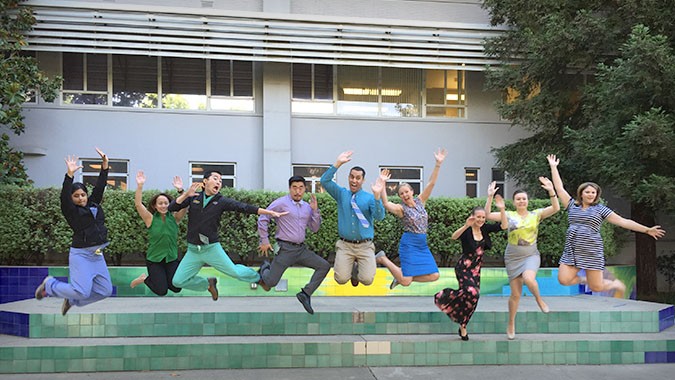
Contact Information
Residency Training Program
Department of Pediatrics, UC Davis Health
2516 Stockton Boulevard
Sacramento, CA 95817
Phone: 916-734-2428
Email: pedsresidency@health.ucdavis.edu

